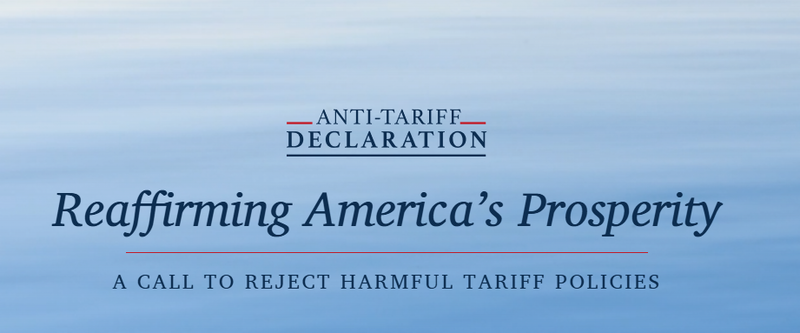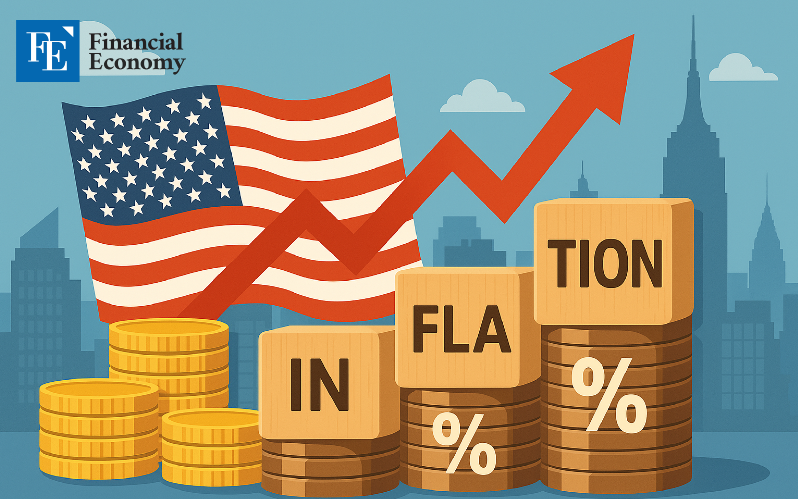Nobel Laureates Join 900 U.S. Economists in Rebuke of Trump’s Tariff Policy
Input
Modified
U.S. Economists Slam Reciprocal Tariff Policy as Deeply Flawed “A Rejection of Liberal Economic Principles, Based on No Valid Evidence” “It Will Trigger Inflation and a Self-Inflicted Recession—American Workers Will Bear the Cost”

Prominent U.S. economists—including several Nobel Prize laureates—have publicly denounced President Donald Trump’s tariff policies. In a joint declaration, they warned that the administration’s strategy is divorced from economic reality and could ultimately trigger a self-inflicted recession.
A Public Rebuke Against Trump’s Tariff Policy
April 20 (Local Time) – A wave of backlash is mounting within the U.S. economic community as more than 900 economists, including two Nobel Prize winners, have issued an open letter denouncing President Donald Trump’s tariff policy. The signatories argue that the administration’s approach is disconnected from economic reality and poses a serious risk of triggering a recession.
In the declaration, titled the “Anti-Tariff Statement,” Nobel laureates James Heckman and Vernon Smith, along with hundreds of scholars and researchers, criticize the notion that tariffs promote “economic liberation.” Instead, they argue that tariffs undermine the liberal economic principles that fueled decades of American prosperity.
“Those advocating tariffs may portray them as tools of economic freedom, but in reality, they overturn the very liberal principles that have underpinned the prosperity led by the United States,” the letter reads. “The current administration’s tariff policy stems from a fundamental misunderstanding of the economic conditions faced by everyday Americans.” The economists warn that ordinary American workers will ultimately pay the price in the form of rising inflation and heightened risk of economic slowdown. They also sharply criticize the principle of “reciprocal tariffs” applied indiscriminately to most countries.
“President Trump’s notion of ‘reciprocal tariffs’ is based on an ad hoc and economically unsound formula,” the letter continues. “It bears little resemblance to economic reality.”
At the heart of the criticism is how Trump’s administration calculates tariff rates. According to the White House, the President personally selected a method that divides the U.S. trade deficit by total imports—a simplistic ratio seen by many experts as amateurish. While the U.S. Trade Representative (USTR) claimed to account for price elasticity and cost pass-through effects, economists contend that the approach lacks analytical rigor.
Earlier this month, Trump dismissed concerns about inflation and investment slowdowns triggered by tariffs, calling any hardship “temporary” and asserting that “things will work out in the end.” But economists argue that the underlying formula is fundamentally flawed and not grounded in data or sound economic modeling.

Tariff Volatility Erodes Market Confidence
Trump has repeatedly imposed and then suspended tariffs since his reelection. On April 2, he unveiled sweeping new tariffs on global imports, only to defer the steepest rates for 90 days and maintain a basic 10% tariff for most countries a week later, sowing further market confusion.
This policy flip-flopping has heightened market volatility. On April 11, the U.S. Dollar Index—a measure of the dollar’s strength against six major currencies—dropped to 99.01, its lowest level since July 2023, marking a decline of over 9.4% compared to the start of Trump’s term.
U.S. Treasury markets also reacted with unease. Yields on 10-year bonds spiked to 4.448% after bottoming out at 3.886% just days earlier, indicating a sharp drop in bond prices as investors fled. Normally, in times of equity market stress, investors flock to safe havens like the dollar and U.S. Treasuries—but not this time.
Strategists interpret this divergence as a loss of market confidence. “The decline in bond and dollar values represents a de facto vote of no confidence in Trump’s economic strategy,” said Nomura Holdings strategist Masuzawa Naka.
Economic Uncertainty and Global Fallout
The Wall Street Journal recently noted that the U.S., long buoyed by fast growth, technological dominance, and affordable energy, is no longer seen by international investors as a safe bet. The era of “American exceptionalism,” it warned, may be waning. Economists also worry about the return of stagflation—a toxic combination of stagnation and inflation not seen since the late 1970s. Adam Posen, president of the Peterson Institute for International Economics, puts the chance of recession at 65% due to Trump’s trade policy. “Even if trade agreements are reached, tariffs are likely to remain,” Posen said, adding that the policy is “likely to raise prices, stoke inflation, and ultimately suppress economic activity.”
Posen also expressed skepticism about the potential impact of tax cuts and deregulation, citing the "chronic uncertainty" emanating from the White House as a deterrent to spending and investment. He warned that Trump’s confrontational trade stance may fracture decades-old economic alliances and prompt other nations to band together to shield themselves from American policy volatility.
“Trump’s fundamentally different approach to trade will only amplify global uncertainty and could lead allies to unite—not behind the U.S., but against it,” he said. Furthermore, if the administration attempts to mitigate tariff-related damage through subsidies or increased government spending, Posen cautions, the result could be runaway inflation. “Providing subsidies to offset tariffs would only accelerate fiscal expansion and fuel further inflation,” he concluded.





















